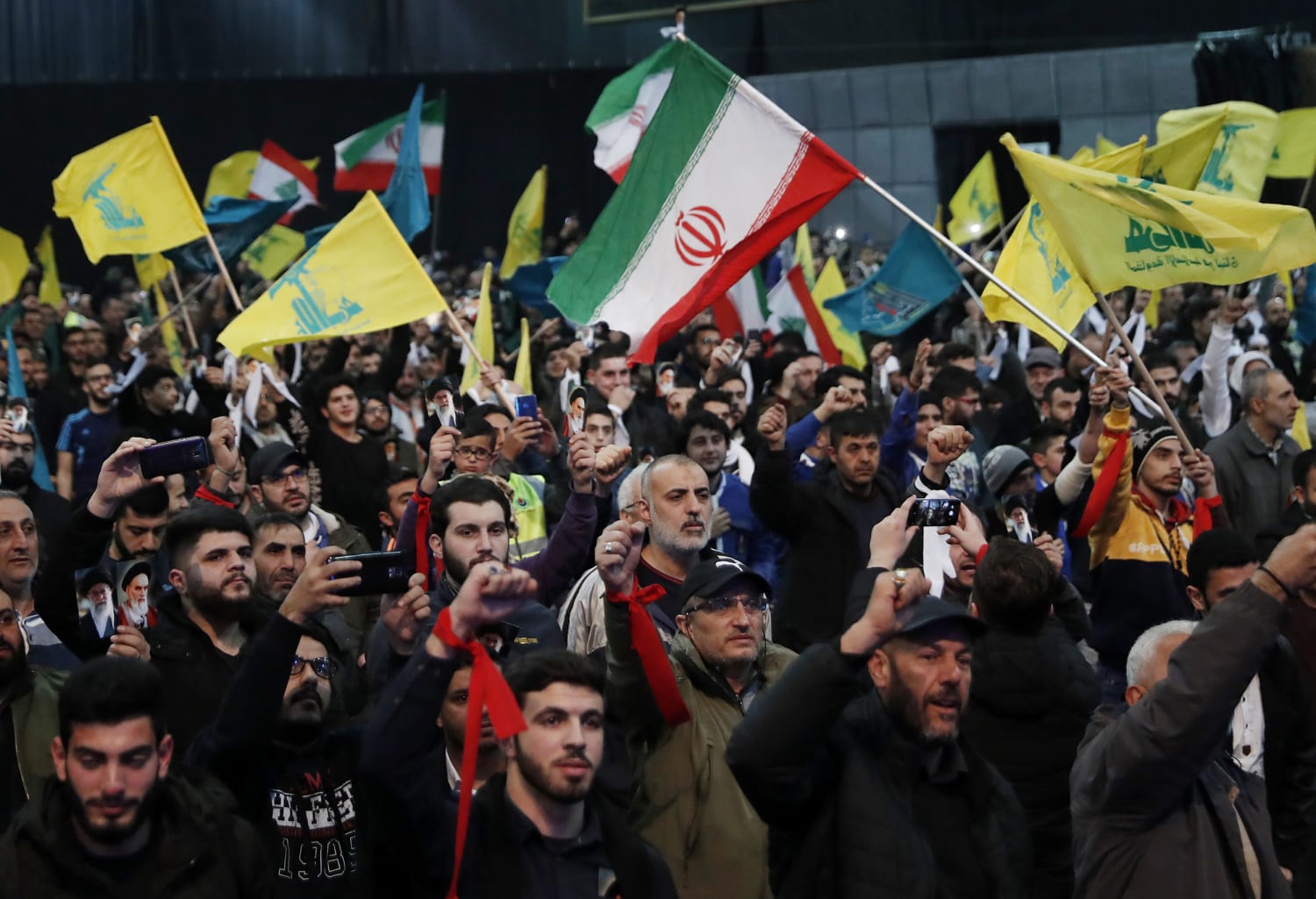
By Kareem Chehayeb - Al Jazeera - Beirut, Lebanon – Before mass protests against Lebanon’s ruling elite swept the country in October 2019, Yasmin Saad never thought she would be particularly invested in her home country’s politics. But two years later, watching from France a number of compounding crises battering millions of Lebanese, the 22-year-old marketing student decided to register to vote in next year’s parliamentary election. “I feel it’s a last chance – or a last hope,” Saad told Al Jazeera from Marseille. “What really, really pushed me to start voting was those days when everyone was protesting on the street – and we had protests and gatherings of our own in France.” She is not alone. More than 210,000 Lebanese living abroad have met Saturday’s deadline and registered to cast ballots in the March 27 election – more than double the number of expats who signed up for the previous polls in 2018.
Millions of Lebanese have left the country over the past decades, taking their skills and talents abroad to seek better opportunities in the face of instability, entrenched corruption and financial mismanagement. Though there are no clear numbers, many estimates claim that more live abroad than within the tiny country itself, home to some 6.5 million people, including Lebanese and refugees. Lebanese abroad were allowed to vote for the first time in 2018 under a new electoral law that also stipulated that six new seats would be added to the parliament in the 2022 election to represent the diaspora. However, independent political parties and many expats disagreed with the addition, arguing this was a way to isolate the diaspora from the local constituencies. Last month, MPs rejected adding those six seats, which means expats will vote in May for the existing 128 seats.

BEIRUT By AP -- Lebanon's navy rescued a boat carrying migrants that had left the country, heading west across the Mediterranean Sea, but broke down off the coast, the prime minister’s office said Saturday. It was the latest case of desperate people — mostly Lebanese, Syrians and Palestinians — sailing toward European Union member Cyprus, and sometimes Turkey, seeking to escape Lebanon's worsening economic meltdown. Some 75% of the country's population of 6 million, including more than a million Syrian refugees, now lives in poverty.
Prime Minister Najib Mikati’s office said the migrants had left Lebanon illegally, and that the navy towed the boat shoreward. It did not say how many migrants were aboard but said some were children. The statement added that there would be an investigation. Smugglers in Lebanon have made a business out of selling passage to Europe for thousands of dollars per per person. Upon their arrival at the coast, the migrants were detained and questioned by Lebanese authorities, the state-run National News Agency said. It said the migrants were in the dozens. On Saturday evening, relatives of the migrants protested, closing off three major roads, including the street leading to the port in the northern city of Tripoli demanding their release, the news agency reported. On Friday, the Internal Security Forces stormed a beach resort in the northern town of Qalamoun, where they foiled an attempt to smuggle 82 men, women and children to Europe. Police said that passengers had paid $5,000 per person, and that they had detained one of the smugglers.
العلم اللبناني رمز عزتنا وكرامتنا. وحده يجب ان يرفع دون اي علم آخر او راية او بيرق وتذود عنه بندقية الجيش. حيث …

by brookings.edu -- Lebanese Hezbollah’s role as an Iranian proxy and its provision of significant assistance to its allies in Syria, Yemen, and Iraq has been an area of justified focus for policymakers in many capitals but the organization’s evolving role inside Lebanon merits equal attention. While it is customary to characterize Hezbollah as a “state within a state,” it is more accurate now to define it as a “state within a non-state,” in view of the sheer inability of the Lebanese government to deliver even the most basic services to a desperate population plunged into its worst economic crisis in over a century. In the past, Hezbollah was able to distinguish itself from Lebanon’s ruling circles, capitalizing on its nonstate status and role as the “resistance” to Israel. However, in recent years, Hezbollah has become ever more entangled with the country’s kleptocratic ruling elites and status quo defenders, an association that has alienated many of their compatriots. It is this mutation in Hezbollah’s role which poses risks for the organization and opportunities to support efforts aimed at bolstering institution building and the return of the state as well as the injection into Lebanese politics of more independent and technocratic individuals via national elections organized for the spring of next year.
Iran’s investment in Hezbollah proved successful for many years after Tehran, with the assistance of Damascus, oversaw the establishment of the organization in 1982. It was exempted from the Taif arrangements in 1989 which forced the demobilization of Lebanon’s other sectarian militias and therefore benefited greatly from this “last man standing” status. Hezbollah served a useful purpose as the tip of the Iranian spear in the Levant against Israel, with its most celebrated achievement being the Israeli withdrawal from southern Lebanon in 2000, for which Hezbollah took full credit. Lebanese citizens and many in the Arab world rallied around Hezbollah during its destructive 2006 war with Israel. From that time until today, the south has remained relatively quiet, with an uneasy unofficial truce established between Israel and Hezbollah.
Khazen History


Historical Feature:
Churches and Monasteries of the Khazen family

St. Anthony of Padua Church in Ballouneh
Mar Abda Church in Bakaatit Kanaan
Saint Michael Church in Bkaatouta
Saint Therese Church in Qolayaat
Saint Simeon Stylites (مار سمعان العامودي) Church In Ajaltoun
Virgin Mary Church (سيدة المعونات) in Sheilé
Assumption of Mary Church in Ballouneh
1 - The sword of the Maronite Prince
2 - LES KHAZEN CONSULS DE FRANCE
3 - LES MARONITES & LES KHAZEN
4 - LES MAAN & LES KHAZEN
5 - ORIGINE DE LA FAMILLE
Population Movements to Keserwan - The Khazens and The Maans
ما جاء عن الثورة في المقاطعة الكسروانية
ثورة أهالي كسروان على المشايخ الخوازنة وأسبابها
Origins of the "Prince of Maronite" Title
Growing diversity: the Khazin sheiks and the clergy in the first decades of the 18th century
Historical Members:
Barbar Beik El Khazen [English]
Patriach Toubia Kaiss El Khazen(Biography & Life Part1 Part2) (Arabic)
Patriach Youssef Dargham El Khazen (Cont'd)
Cheikh Bishara Jafal El Khazen
Patriarch Youssef Raji El Khazen
The Martyrs Cheikh Philippe & Cheikh Farid El Khazen
Cheikh Nawfal El Khazen (Consul De France)
Cheikh Hossun El Khazen (Consul De France)
Cheikh Abou-Nawfal El Khazen (Consul De France)
Cheikh Francis Abee Nader & his son Yousef
Cheikh Abou-Kanso El Khazen (Consul De France)
Cheikh Abou Nader El Khazen
Cheikh Chafic El Khazen
Cheikh Keserwan El Khazen
Cheikh Serhal El Khazen [English]
Cheikh Rafiq El Khazen [English]
Cheikh Hanna El Khazen
Cheikha Arzi El Khazen
Marie El Khazen